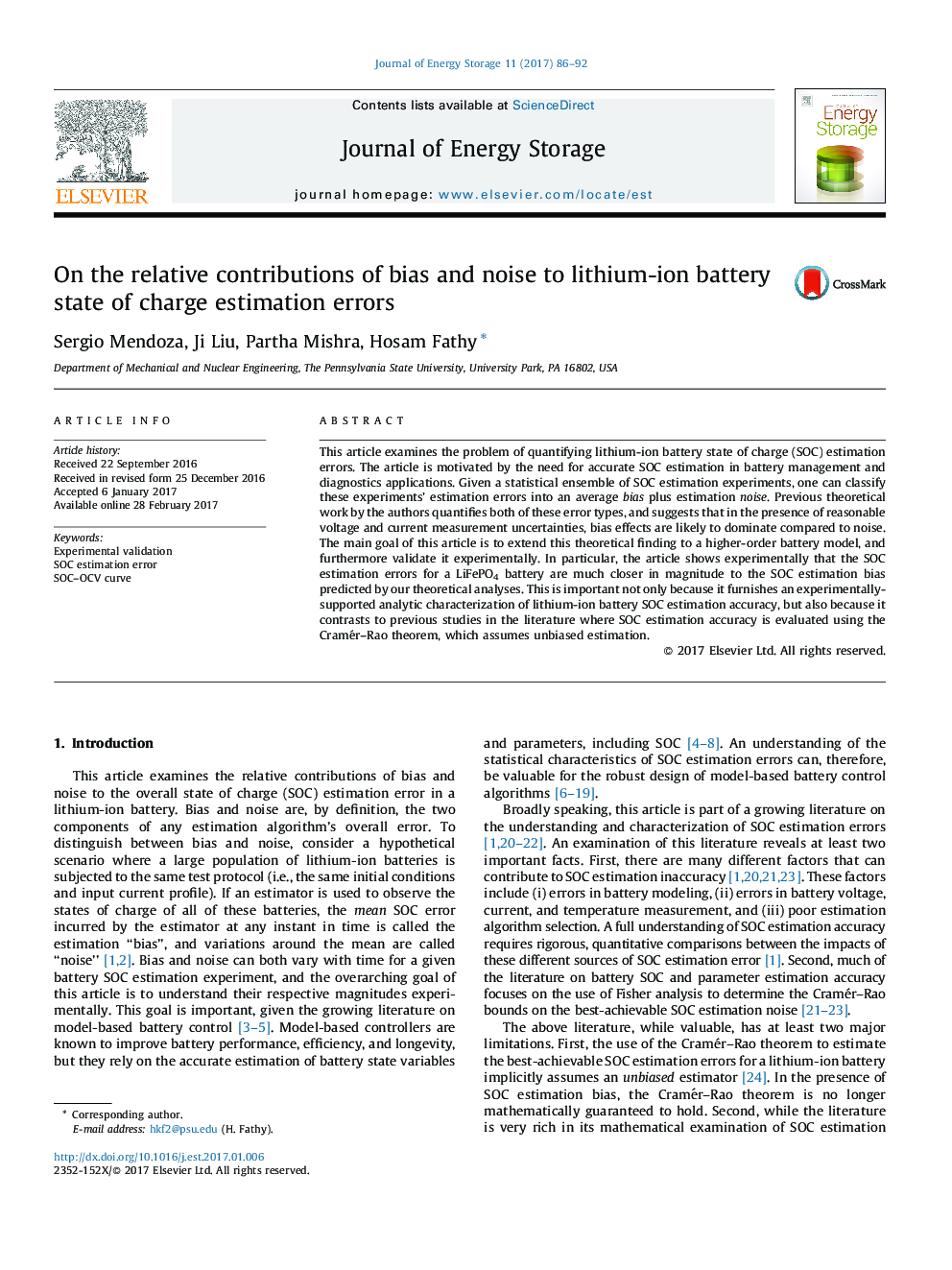| Article ID | Journal | Published Year | Pages | File Type |
|---|---|---|---|---|
| 5127267 | Journal of Energy Storage | 2017 | 7 Pages |
â¢Derived SOC estimation error expressions based on reduced battery models.â¢Validated the result on a set of lithium iron phosphate (LFP) cells.â¢Compared the results from the experimental to predictions assuming an unbiased estimator.
This article examines the problem of quantifying lithium-ion battery state of charge (SOC) estimation errors. The article is motivated by the need for accurate SOC estimation in battery management and diagnostics applications. Given a statistical ensemble of SOC estimation experiments, one can classify these experiments' estimation errors into an average bias plus estimation noise. Previous theoretical work by the authors quantifies both of these error types, and suggests that in the presence of reasonable voltage and current measurement uncertainties, bias effects are likely to dominate compared to noise. The main goal of this article is to extend this theoretical finding to a higher-order battery model, and furthermore validate it experimentally. In particular, the article shows experimentally that the SOC estimation errors for a LiFePO4 battery are much closer in magnitude to the SOC estimation bias predicted by our theoretical analyses. This is important not only because it furnishes an experimentally-supported analytic characterization of lithium-ion battery SOC estimation accuracy, but also because it contrasts to previous studies in the literature where SOC estimation accuracy is evaluated using the Cramér-Rao theorem, which assumes unbiased estimation.
